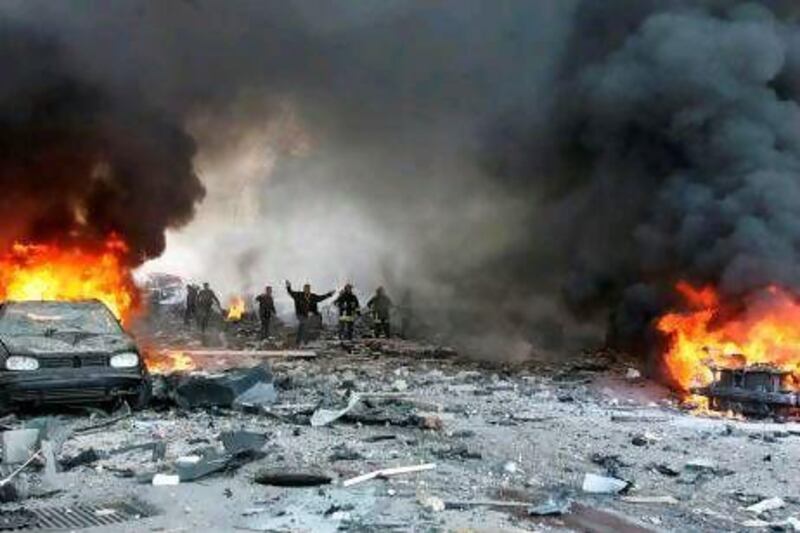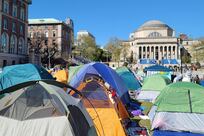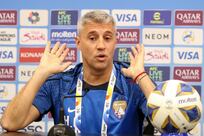Seven years after a Beirut suicide bombing killed the former Lebanese prime minister and 21 others, the aftershocks ripple through the country's politics and taint the lives of those left behind. Zoi Constantine, Foreign Correspondent, reports
BEIRUT // Talal Nabih Nasser was not meant to be on duty the day he died.
The night before the bombing that ended his life, he called a colleague to swap shifts so he could take his family away for a long weekend.
The next day he was one of 22 people killed when a van packed with 2,500 kilograms of TNT exploded next to the motorcade in which he was travelling with his boss, the former Lebanese prime minister Rafiq Hariri.
Seven years after the suicide bomb ripped through Beirut city centre, the impact of the assassination continues to reverberate through Lebanese politics and the lives of the bereaved.
For Nasser's mother, Siham, the pain of losing her son, who was 44, has not faded. On Monday she visited his grave at the mausoleum just off Martyrs' Square in the centre of the Lebanese capital. Nasser, who was one of Hariri's chief bodyguards, is buried a few metres away from the body of the former premier.
"The day he died was the worst day of my life," says Mrs Nasser, tears trickling down her face. "I feel so much sorrow. I didn't used to know sorrow or sadness in this house before that day."
In her apartment in the Tareeq al Jadeeda neighborhood of Beirut, Mrs Nasser, 71, browses the photographs of Hariri and his bodyguard that adorn the walls and sit in display cabinets. Among them is a sequence of images taken minutes before the bombing. They show Nasser in his trademark sunglasses, looking alert.
"I am so sad that my son died with Hariri," says Mrs Nasser, who has seven other children. "But if he had stayed alive and Hariri had been killed, he would not have recovered."
Nasser's younger brother, Bilal, who shares the apartment with his mother and sister, remembers the moment he heard about the bomb explosion.
A financial officer for education-related projects, Mr Nasser was in his office in Beirut when several colleagues burst in, saying there had been a bombing.
"'Please, Bilal', they said, 'call your brother to make sure he's OK'," Mr Nasser recalls, "I didn't expect that this could happen to Hariri, I thought the explosion was for the US embassy or something. So I told them I was busy."
A friend returned with news that Hariri's head of security, Yahya Al Arab, also known as Abu Tareq, was among the dead.
Suddenly, says Mr Nasser, "everything went black", but the one thing he clung to was that his brother was not meant to be on duty.
"The first thing I did was I looked to the sun," he says. "Talal told me the day before that he didn't have work that day and he was going to swim at the beach. I saw that it was sunny, so I felt a bit calm."
The family tried to reach Nasser but the phone lines were down. Finally, Mr Nasser decided to make his way to the hospital in Hamra where the injured were being treated. It was there that one of his brother's friends told him he had been killed in the blast.
"I didn't believe it, I can't explain, I thought it was the end of everything," he says. "But, it was his time to go."
Nasser, who had two young daughters, worked for Hariri for two decades. His work was a source of pride for his family, and they never really worried for his safety.
But in the last six months of his life Mr Nasser says his brother appeared increasingly anxious, as political tension with Syria was mounting.
"He didn't seem comfortable. He used to just say 'Allah yostor' - God knows what's going to happen," he says.
Mr Nasser is unequivocal about who he believes was behind the bombing. "We blame Syria for this. We blame Bashar Al Assad," he says. "From the first week, I swear, this is what I believed. Hariri had an agenda that was so different to Bashar Al Assad."
The assassination triggered what the opposition March 14 coalition refers to as the Cedar Revolution - mass demonstrations that precipitated the withdrawal of Syrian troops from Lebanon after a 29-year military presence.
Suspicion was initially cast on the Syrian regime, but four Hizbollah supporters from Lebabon were indicted last year by the United Nations-backed court investigating the killing.
The Lebanese prime minister, Najib Mikati, said this week that he expected the Special Tribunal for Lebanon (STL) to issue a new indictment this month.
The March 14 bloc held a gathering in Beirut yesterday to mark the anniversary of the assassination. Hariri's son Saad addressed the crowds in a televised speech from Paris, in which he and other opposition leaders expressed support for the Syrian uprising and for the STL.
"The course of justice in the case of the assassination has reached a point of no return. This course will definitely lead to uncover the perpetrators and the accused, and establish the rules that protect Lebanon from political assassinations," Mr Hariri said.
For Mr Nasser, the STL may be the only way to find out who was behind the bombing that killed his brother.
"The most important thing for me and my family is to find the truth," he says. "Justice will come, not soon, but in the long run."





